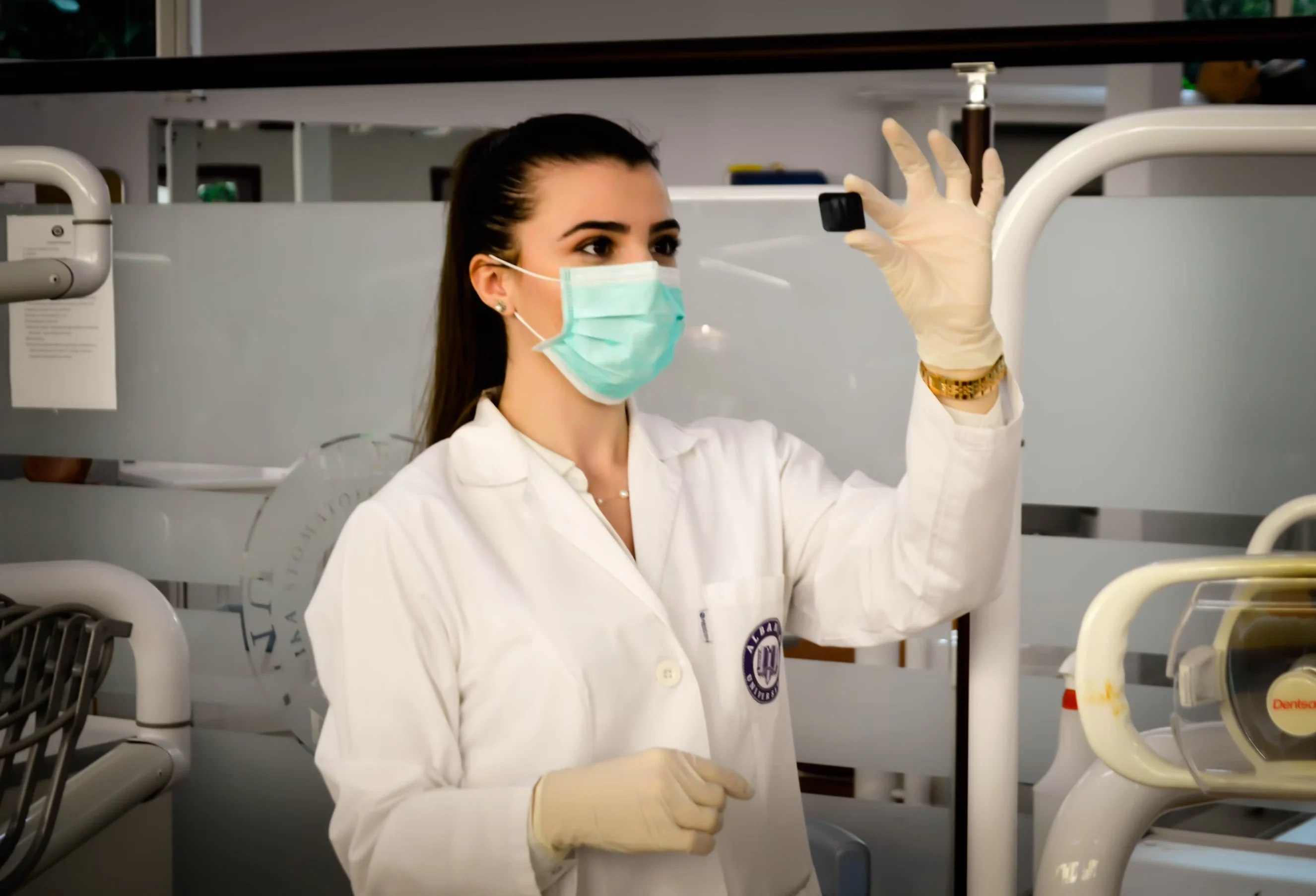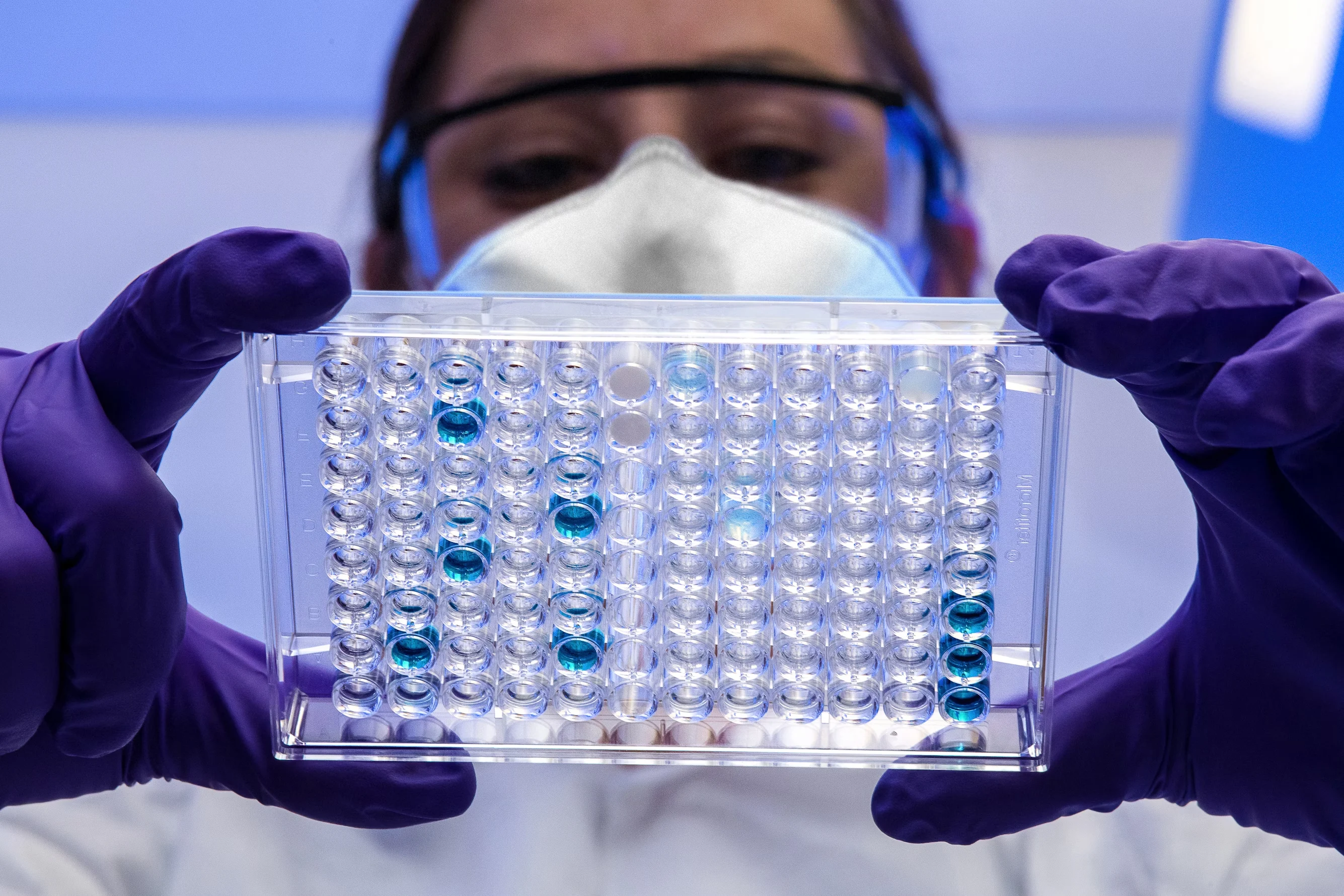- News and articles
- Events
- Find usIDP AustraliaIDP BahrainIDP BangladeshIDP CambodiaIDP CanadaIDP ChinaIDP EgyptIDP GhanaIDP Hong KongIDP IndiaIDP IndonesiaIDP IranIDP JordanIDP KenyaIDP KoreaIDP KuwaitIDP LebanonIDP MauritiusIDP Middle EastIDP NepalIDP New ZealandIDP NigeriaIDP OmanIDP PakistanIDP PhilippinesIDP Saudi ArabiaIDP SingaporeIDP Sri LankaIDP Taiwan, ChinaIDP ThailandIDP TurkeyIDP UAEIDP VietnamIDP Corporate
- Social
- English
Topics covered
- Published: 24 April 2024
Introduction
The pandemic has taught us the importance of health and the need to consistently develop new medicine and drugs for generations to come.
And at the heart of this is biochemistry - a discipline where innovation meets science and engineering. As a biochemist, you will be at the forefront of turning thesis and theories into real-world applications such as medicine and treatments that can directly save human lives.
This is one career path that has longevity and will consistently challenge you as healthcare becomes more complicated and new strains of viruses are detected.
If you love science, have a curious spirit of innovation, appreciate challenges, and want to make an impact on our communities, embarking on a career in biochemistry is a path to consider!
Here’s everything you need to know about working as a biochemist and the path you can take to reach your goal.

1. Your Starting Job Titles & Positions
As a new graduate with a biochemistry degree, you will start to work either as a biotechnologist, biochemist, or analytical chemist.
While the titles might seem similar there are quite a few differences to take note of.
As a biotechnologist, you will be studying the chemical, genetic, and physical attributes of cells and organisms to uncover new insights to develop innovative technologies. This will be a research-intensive role.
As an analytical chemist, you will be involved heavily in the development and formulation of drugs as well as creating new processes for their development.
2. Your Responsibilities & Day To Day Tasks
If you begin as a biotechnologist, your day-to-day tasks will help give you a secure foundation in research and build your scientific knowledge.
It will involve creating, conducting, and monitoring experiments where you test out drugs on live organisms to achieve desired results. The daily tasks also include maintaining laboratory equipment, performing data analysis on your experiments, and deriving insights to help guide further future research.
As an analytical chemist, your daily responsibilities will centre around process development and quality control initially.
This means the preparation and analysis of samples of drugs as well as identifying the right chemical compositions using machinery and instruments such as gas chromatography and mass spectroscopy for investigation.
In both roles, you are also required to work with other scientists and teams to write research papers that will help in the development of new drugs.
As you progress in your role, you will also have more opportunities to liaise and work together with suppliers, stakeholders, and even the public.

3. Your Career Progression
While you might start as a biotechnologist or analytical chemist, your career progression is flexible depending on your company and role.
If you are looking to be a specialist in your field, you can work your up towards becoming a senior biochemist and then a biomedical scientist. You could also specialise in specific areas of the field and take on roles that include a pharmacologist as well as a nanotechnologist.
However, if you choose the management role, you can advance as a laboratory director and directly manage a group of scientists and biochemists to help better chart the development of new innovative drugs.
4. Your Expected Salary
As a biochemist, you can expect your entry-level salary to be around $67,000. However, as you acquire more experience in your field and company, you can expect to make at least $85,000.
If you progress onwards and become a specialist such as a toxicologist, you can expect to pull in $100,000 and if you choose the management route, you can make up to $160,000 as a laboratory director.
5. University Courses To Launch A Career
To become a biochemist, the fastest route is to study for a degree in biochemistry directly. This will give you a strong grounding in biology and chemistry simultaneously.
You will be introduced to a rich curriculum of molecular and cell biology as well as core concepts of organic and physical chemistry that are essential to building your base knowledge.
During your coursework, you will also perform enriching and complex laboratory experiments that can include experimenting on genetics, DNA, RNA, and protein synthesis. This will allow you to gain hands-on experience when it comes to running tests and analysis, something you will likely be doing daily in your role as a biochemist.
If you are interested in progressing your career toward being a biomedical scientist, you will have to further your education with a PhD or master's. This will allow you to gain more knowledge and training in specialised areas such as nanotechnology or genetics.

Pursue Your Biochemistry Degree With IDP
Keen on taking the next step and pursuing a career as a biochemist?
Our experienced team of education counsellors is here to answer all your questions and assist you!
Besides that, they will be able to give you advice when it comes to selecting the right university that will suit your needs and career aspirations.
At IDP, we ensure that you get the best quality education possible by navigating different universities and guiding you through the course application process.
Kickstart your overseas study journey by booking a counselling session today.
If you prefer to meet us virtually, simply fill up this form and we’ll get back to you!
One account for all your study abroad needs
Create your profile and unlock a wide array of features including personalised recommendations, fast-tracked applications and much more.
Search for articles
Dive into our extensive collection of articles by using our comprehensive topic search tool.















